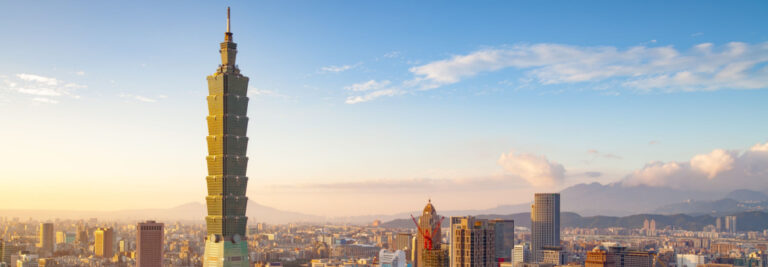Only days before the beginning of the lunar new year—a major festival celebrated on both sides of the Taiwan Strait and across Asia—senior leaders from the Chinese Communist Party (CCP) met for an annual Taiwan affairs conference (對台工作會議) comprised of central and local cadres working on Taiwan-related affairs.
Present at the meeting was the fourth-ranking CCP Politburo Standing Committee (PBSC) Member Yu Zhengsheng (俞正聲). Yu, who serves in several functional capacities as chairman of the Chinese People’s Political Consultative Conference (CPPCC) and as deputy director of the party-led Taiwan Affairs Leading Small Group (TALSG), attended the January 20 conclave to discuss the previous year’s work report and the Party-State’s policy markers for 2017.
As a member of PBSC, Yu is among seven of the most senior cadres in charge of the most powerful decision-making organ within the CCP. The CPPCC serves an advisory role to the CCP-led state; and as deputy director of the TALSG, Yu is second only to CCP General Secretary and PRC President Xi Jinping in the pecking order for setting Beijing’s Taiwan policy.
Reinforcing similar remarks made recently by other Chinese officials, Yu observed that the cross-Strait environment would grow “more complex and grim” in 2017. Doubling down on the so-called “1992 consensus,” a statement reportedly issued after the meeting stated that the Party must “unite all Taiwanese parties, groups and organizations that uphold the one-China principle to protect the political foundation of the 1992 Consensus.”
Not surprisingly, the Chinese state media interpreted Yu’s remarks as an affirmation of the CCP Central Committee’s Taiwan Affairs Office’s (中共中央對國台辦) work on Taiwan. The state-sanctioned accolades come on the heel of rumors that the director of the State Council’s Taiwan Affairs Office (TAO), Zhang Zhijun (張志軍), may be stepping down, perhaps due to growing discontent among the senior leadership because of the perceived failure of its Taiwan policy. As head of the State Council’s TAO, Zhang is dual-hatted, also serving as head of the CCP Central Committee’s Taiwan Affairs Office.
Party cadres and government officials across the central government and local provinces responsible for implementing the Party’s policy towards Taiwan attended the meeting. Apparatchiks were called upon to deepen their understanding of Xi’s philosophy on Taiwan policy. According to the official Xinhua News Agency, “efforts will be made to continue non-official exchanges and cooperation, promote economic and social integration, as well as to let the public better participate in and benefit from cross-strait exchanges. More policies will be adopted to facilitate Taiwanese compatriots in studying, working, starting a business and living in the mainland and to support Taiwanese enterprises in accomplishing better development.”
In a political culture fixated on rank, hierarchy, and nomenclature, it is interesting to note the senior cadres missing from the stage at this year’s meeting. Notably absent from pictures was the head of the CCP Central Committee’s United Front Work Department Sun Chunlan (孫春蘭). Sun, a current member of the Politburo, had appeared in previous years meeting and considered a possible replacement for Yu. It is not known why Sun was not at the meeting and raises an interesting question of who might take Yu’s place when he steps down after the 19th National Congress.
Consistent with past practices, the meeting was presided over by State Councilor Yang Jiechi (楊潔篪)—who served as the previous PRC Ambassador to the United States—and currently the secretary-general for the CCP Central Committee’s Leading Small Group on Foreign Policy and of the TALSG.
Despite little apparent change, in terms of the meeting’s substance, the backdrop for this year’s confab stands out from previous years for several reasons. First, the last meeting was held in early February 2016, just weeks after Tsai Ing-wen was elected as president of Taiwan. Second, President Tsai has now been in office since May 2016, and her tenure has included the unprecedented December 2016 phone call between herself and president-elect Trump. . Third, China watchers consider 2017 a sensitive year, since the 19th National Congress is seen as a test of Xi’s power.
Yu (b. 1945), along with five other members of the PBSC are slated to step down after the 19th National Congress later this year. This sea change at the upper echelons of power will usher in a new cabinet of senior cadres under Xi—including a new Chairman for the CPPCC who will also serve as the Deputy Director of the TALSG. While it is not known who will take over Yu’s role as CPPCC Chairman and thus ostensibly become Xi’s spokesperson on Taiwan policy within the TALSG, the meeting appears to reflect a desire in Beijing for more continuity than change—at least for the time being.
The main point: While it is not known who will take over Yu’s role as CPPCC Chairman and thus ostensibly become Xi’s spokesperson on Taiwan policy within the TALSG, the meeting appears to reflect a desire in Beijing for more continuity than change—at least for the time being.



